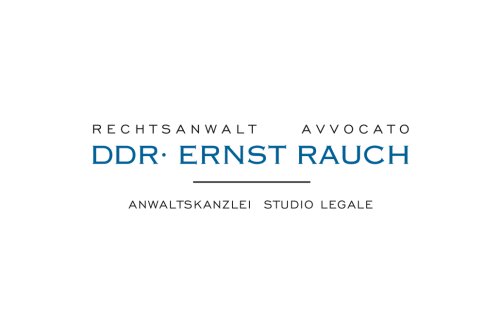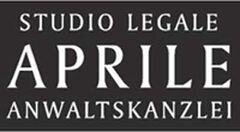Best Collaborative Law Lawyers in Merano
Share your needs with us, get contacted by law firms.
Free. Takes 2 min.
Free Guide to Hiring a Family Lawyer
List of the best lawyers in Merano, Italy
About Collaborative Law in Merano, Italy
Collaborative Law is a modern approach to resolving legal disputes, particularly family conflicts such as divorce and child custody, outside the traditional courtroom setting. In Merano, Italy, Collaborative Law emphasizes cooperative negotiation and open communication between parties, assisted by their respective attorneys. The process is confidential, voluntary, and aims to achieve mutually beneficial solutions while maintaining respectful relationships, especially important when children are involved. This method is increasingly being adopted in Merano due to its focus on reducing conflict, costs, and emotional stress compared to court litigation.
Why You May Need a Lawyer
There are several situations where seeking legal advice from a lawyer experienced in Collaborative Law in Merano can be critical:
- Family Law Matters: Divorce, separation, child custody, and support arrangements often benefit from a collaborative approach to avoid contentious court proceedings.
- Business Disputes: Resolving conflicts between business partners or shareholders through collaborative negotiations can preserve business relationships and operations.
- Inheritance Conflicts: Disagreements over wills and inheritance can often be addressed more amicably with collaborative problem-solving.
- Tenancy and Property Disputes: Collaborative Law offers solutions that satisfy both parties’ interests and help maintain cordial relations.
- Contractual Disputes: Engaging in collaborative negotiation can help prevent escalation and legal battles.
Local Laws Overview
In Italy, the legislative framework for Collaborative Law is grounded in the principles of voluntary participation and good faith. While Collaborative Law is not regulated by a specific statute, it is recognized under Italian civil law, especially following recent reforms embracing alternative dispute resolution (ADR) methods. In Merano, collaborative practitioners abide by the Italian Code of Civil Procedure and relevant guidelines issued by bar associations. Some important local features include:
- Confidentiality of negotiations and shared documents.
- Commitment not to litigate; if collaborative talks fail, parties must seek new legal representation for court proceedings.
- Integration of neutral third-party experts (such as accountants, psychologists, or child specialists) if needed, to facilitate agreement.
- Agreements reached collaboratively can be formalized and made enforceable by the local court in Merano.
Frequently Asked Questions
What is the difference between Collaborative Law and mediation?
Collaborative Law involves both parties retaining their own collaboratively trained lawyers to negotiate an agreement without going to court, whereas mediation involves a neutral third-party mediator who helps the parties reach a settlement. Collaborative Law provides more direct legal advocacy for each participant.
Is Collaborative Law legally binding in Merano?
Yes. Once an agreement is reached and properly documented, it can be submitted to the court for approval and enforcement, making it a binding legal document under Italian law.
Can Collaborative Law be used for any type of dispute?
While commonly used for family law and civil disputes, Collaborative Law is flexible and can address a wide variety of legal conflicts as long as both parties agree to participate.
What happens if the Collaborative Law process fails?
If an agreement cannot be reached, the collaborative lawyers must withdraw, and the parties may pursue traditional litigation with different legal representation. This rule encourages commitment to the collaborative process.
How long does a typical Collaborative Law case take in Merano?
The timeframe varies depending on the complexity of the case and the parties’ willingness to cooperate but is generally faster than court proceedings, often resolving in a few months rather than years.
Are discussions during Collaborative Law meetings confidential?
Yes, confidentiality is a cornerstone of Collaborative Law. What is discussed cannot be used as evidence if litigation later occurs, promoting open and honest communication.
Is Collaborative Law more cost-effective than going to court?
Often, yes. Collaborative Law usually results in lower legal fees and reduced emotional cost because it avoids lengthy court battles and fosters quicker resolutions.
Do I need a lawyer trained specifically in Collaborative Law?
It is highly recommended. Lawyers trained in Collaborative Law understand the unique rules, techniques, and commitments required for successful collaborative negotiation in Merano.
Can children’s needs and voices be considered in the process?
Absolutely. Child-focused collaborative processes often include child specialists who ensure that children’s best interests are prioritized and their perspectives are considered with sensitivity.
Where can I find qualified Collaborative Law lawyers in Merano?
Professional bodies such as the local Bar Association (Ordine degli Avvocati di Bolzano), and Italian Collaborative Law associations, maintain directories of accredited collaborative professionals working in Merano.
Additional Resources
If you need more information or assistance, the following resources can be useful:
- Ordine degli Avvocati di Bolzano: The local bar association for accessing qualified lawyers in Merano.
- Associazione Italiana Professionisti Collaborativi (AIProC): National association promoting Collaborative Practice in Italy.
- Comune di Merano (City of Merano): Municipal legal help and community mediation services.
- Mediation and ADR Centres in Alto Adige/South Tyrol: Offering alternative dispute resolution options.
- Local family support organizations and counseling services familiar with collaborative approaches.
Next Steps
If you believe Collaborative Law may help resolve your legal issue in Merano, consider the following steps:
- Identify the type of dispute and consider if a collaborative approach aligns with your goals.
- Contact the local bar association (Ordine degli Avvocati) to obtain a list of trained Collaborative Law practitioners in Merano.
- Arrange initial consultations with prospective lawyers to discuss your situation and their approach.
- Discuss the collaborative process, commitment required, and potential costs with your chosen lawyer.
- If all parties agree, sign a participation agreement to commence the collaborative process.
- Work alongside your lawyer and any necessary neutral experts to reach a fair and lasting resolution.
- Finalize your agreement through the appropriate local court if needed, ensuring it is legally binding and enforceable.
Lawzana helps you find the best lawyers and law firms in Merano through a curated and pre-screened list of qualified legal professionals. Our platform offers rankings and detailed profiles of attorneys and law firms, allowing you to compare based on practice areas, including Collaborative Law, experience, and client feedback.
Each profile includes a description of the firm's areas of practice, client reviews, team members and partners, year of establishment, spoken languages, office locations, contact information, social media presence, and any published articles or resources. Most firms on our platform speak English and are experienced in both local and international legal matters.
Get a quote from top-rated law firms in Merano, Italy — quickly, securely, and without unnecessary hassle.
Disclaimer:
The information provided on this page is for general informational purposes only and does not constitute legal advice. While we strive to ensure the accuracy and relevance of the content, legal information may change over time, and interpretations of the law can vary. You should always consult with a qualified legal professional for advice specific to your situation.
We disclaim all liability for actions taken or not taken based on the content of this page. If you believe any information is incorrect or outdated, please contact us, and we will review and update it where appropriate.










